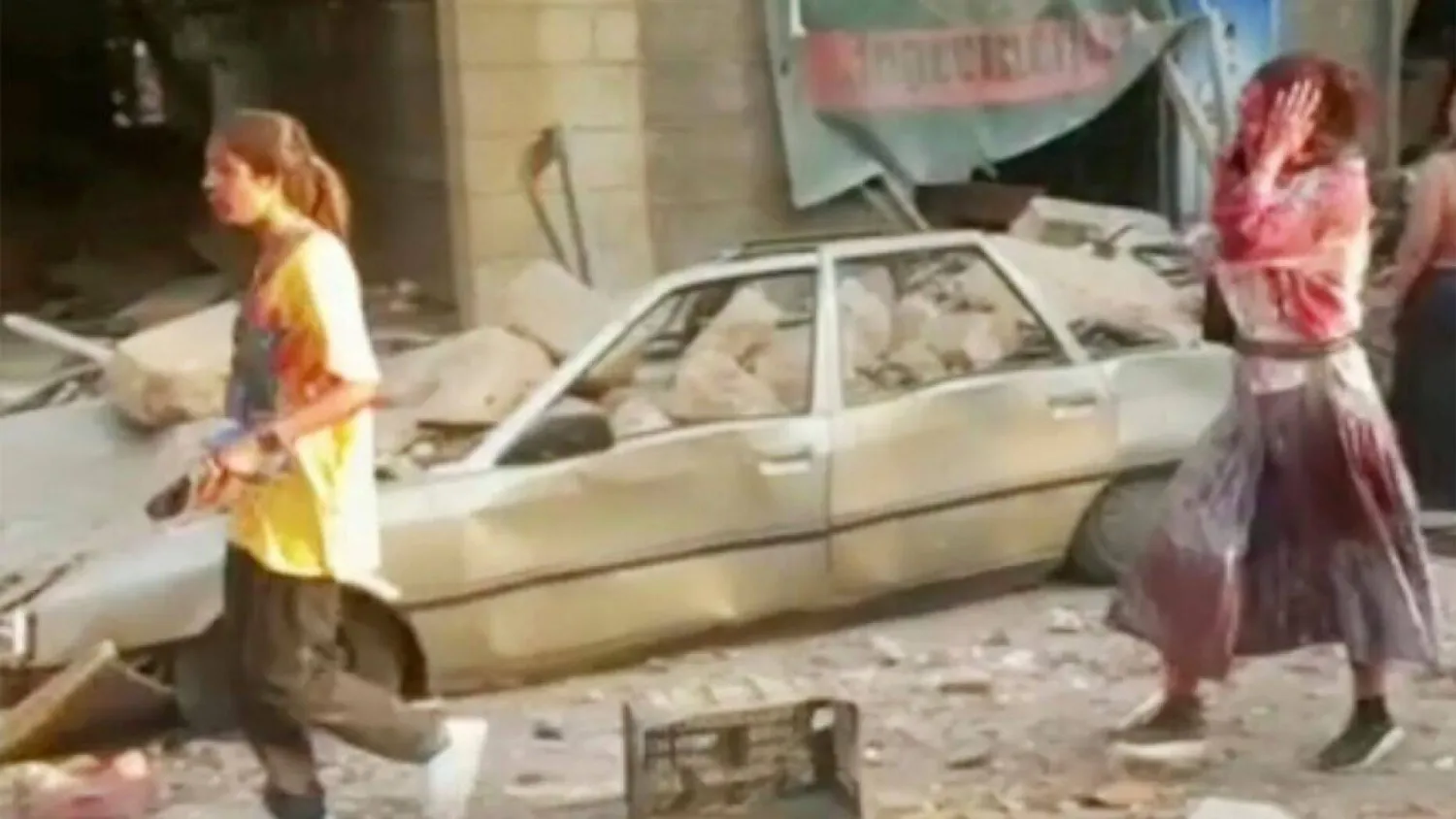Lebanon’s most famous bustling street has turned into a ghost town. Soon after Monday’s massive explosion at Beirut Port, the parallel Mar Mikhael Street, always described as vibrant and full of life, looked like a rebellious spirit refusing to leave a dead body.
People were seen running in every direction, looking for their loved ones, who went missing in the rubble, or trying to grab what was left of their houses and belongings. Screams of the wounded, who were loaded onto passing cars and trucks, merged with ambulance sirens to compose the saddest hymn of agony.
The street was known for its many nightclubs and venues and a large number of famous restaurants. It was already suffering from the worst economic crisis that hit Lebanon in its modern history, then the coronavirus pandemic came to add salt to the injury. The explosion put the final nail in the coffin of a beautiful neighborhood.
Along the street, glass buildings completely collapsed, leaving behind metal skeletons with some furniture tangled or covering smashed vehicles. One of the passers-by was talking to a friend over the phone, telling him: “I saw the horrors of war... but this is way harsher.”
Photos of missing persons were all over TV screens and social media. Most of them are employees at Beirut Port, as well as citizens who were in the area surrounding the site of the explosion. Some witnesses spoke about casualties lost in the sea.
The scale of the explosion was colossal. The ground shook for a few seconds, followed by a large blast that shattered the windows of many buildings, all the way to the outskirts of Beirut, such as Baabda and Hazmieh, which are located at the other end of the capital.
Al-Hamra area, which is relatively far from the site of the incident, sustained heavy destruction. Its shops were severely damaged by the blast that blew up most of the buildings’ windows, including the façades of the American University Hospital in Beirut.
The sound of the explosion resonated in the island of Cyprus. The Jordanian Seismological Center recorded the tremor measuring 4 degrees on the Richter scale.
According to unconfirmed reports, there were about two and a half tons of stored ammonium that exploded as some workers attempted to repair a small window, in order to avoid theft.









